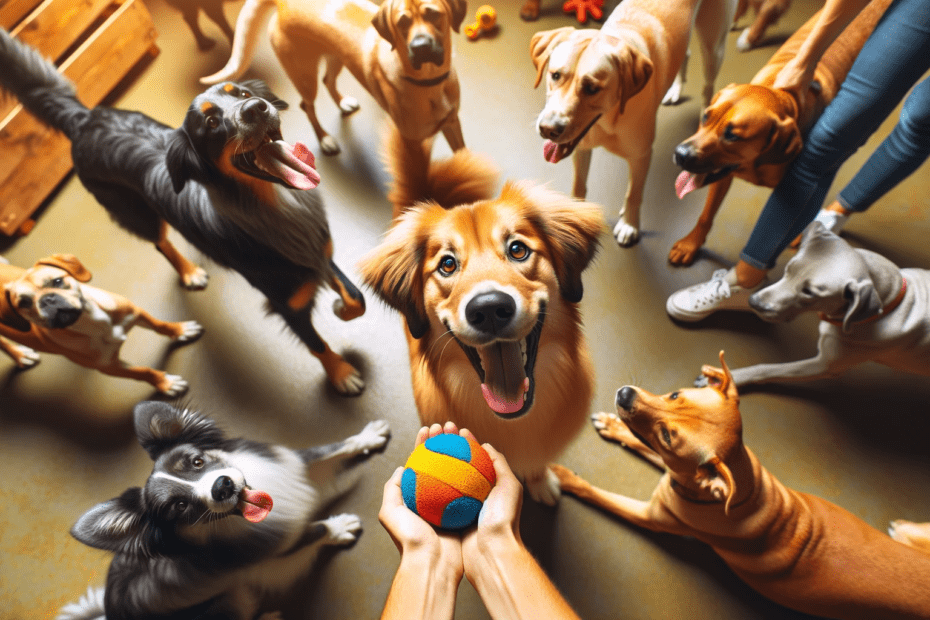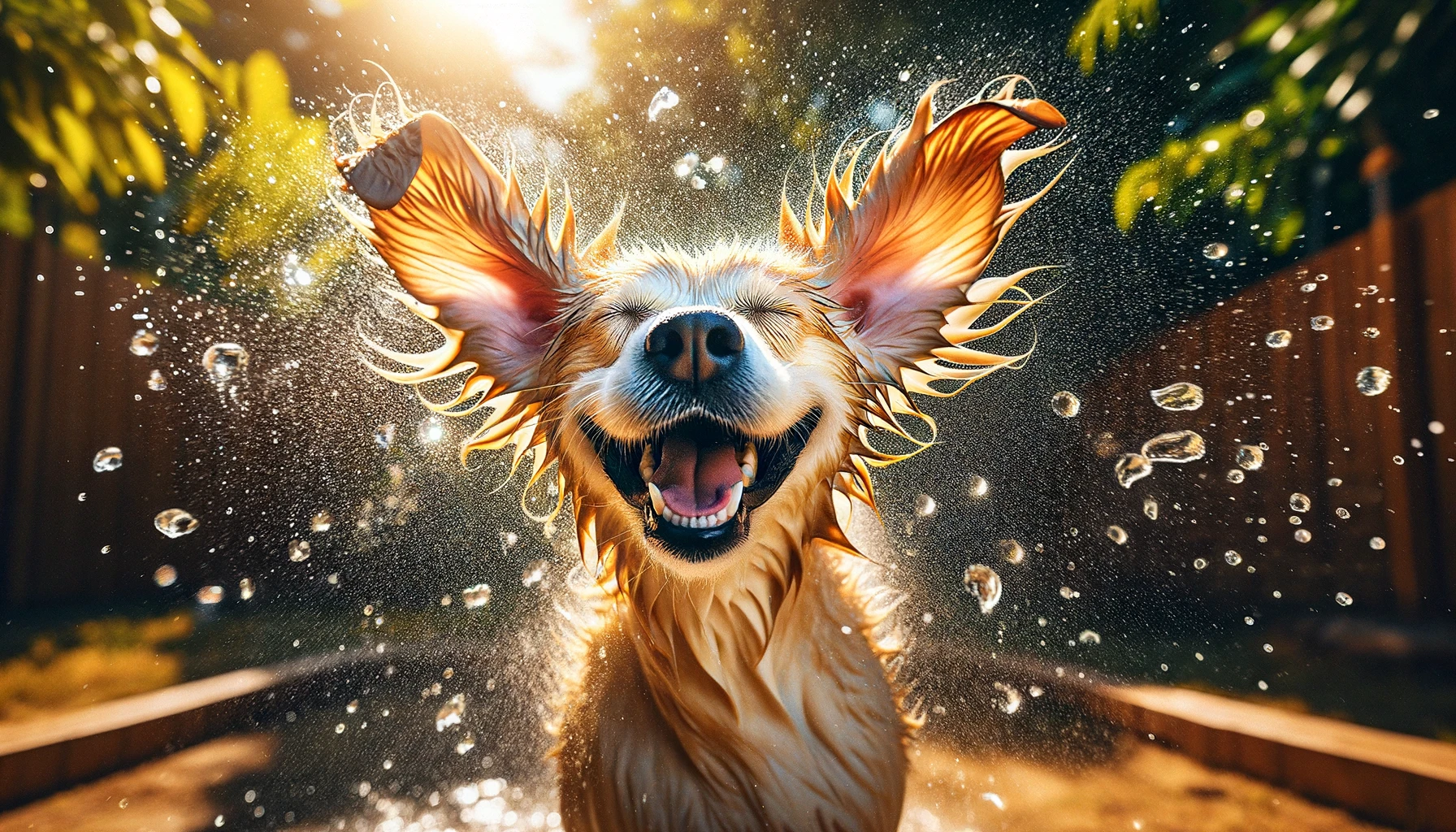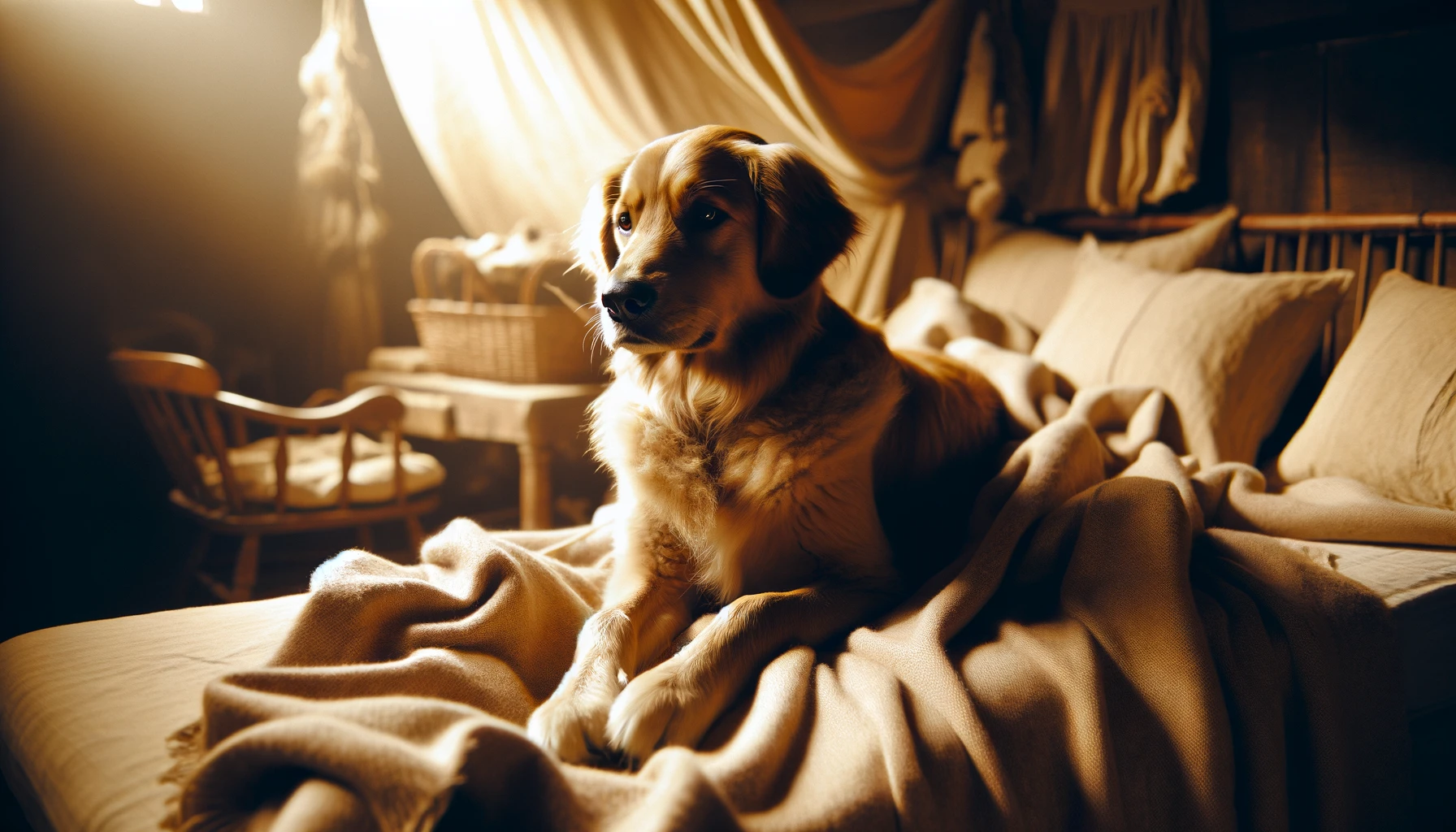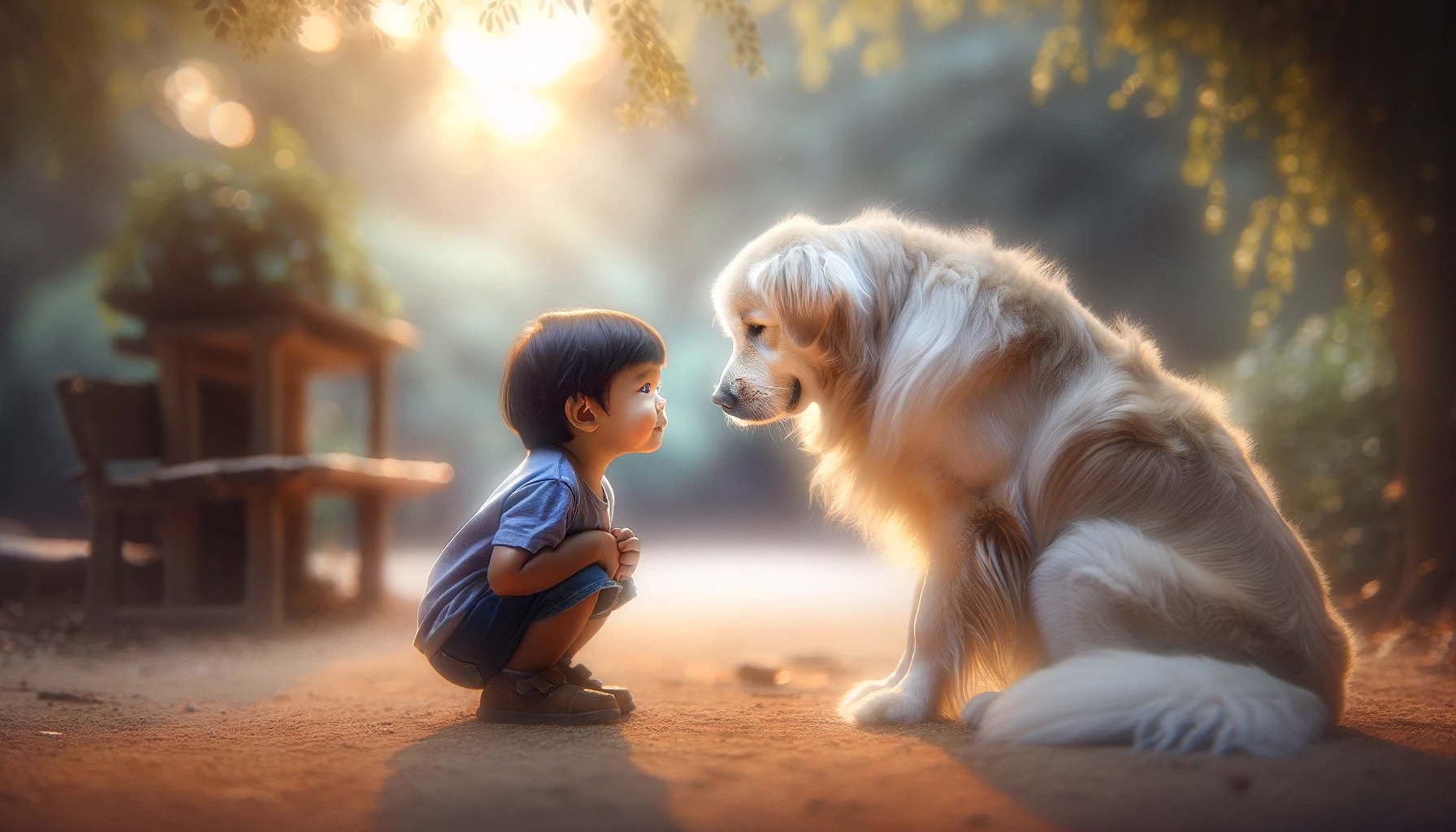Are you struggling with your dog's behavior? Don't worry, we've got you covered!
In this article, we will provide you with essential socialization tips to help your furry friend become a well-rounded and confident companion. From early socialization techniques to introducing your dog to new environments, we will guide you through every step of the process.
Say goodbye to fear and aggression and hello to a happy and sociable pup! Let's get started!
Key Takeaways
- Socializing your dog is crucial for their overall well-being and behavior, helping to prevent issues such as aggression, fear, and anxiety.
- Early socialization techniques, such as enrolling your puppy in playgroups and exposing them to various environments, help develop important social skills and promote confidence.
- Positive exposure to new environments, using gradual introductions and positive reinforcement, helps dogs become more adaptable and reduces fear and anxiety.
- When socializing with other dogs, focus on safe introductions, encourage friendly play, handle leash reactivity with positive reinforcement and gradual desensitization, and prioritize your dog's comfort level.
Importance of Socialization
You must understand the importance of socialization for your dog. Socializing your dog is crucial for their overall well-being and behavior. It helps them develop the necessary skills to interact with other dogs, animals, and people in a positive and appropriate manner. The benefits of socialization are numerous. It helps prevent behavioral issues such as aggression, fear, and anxiety. Socialized dogs are more confident, adaptable, and less likely to develop destructive behaviors.
To effectively socialize your dog, you can employ various techniques. Start by exposing them to different environments, sounds, and sights. Take them for regular walks in different neighborhoods, parks, and busy areas. Encourage positive interactions with other dogs by arranging playdates or attending obedience classes. Introduce them to new people of all ages and encourage gentle handling. Gradually expose them to different situations and stimuli, always ensuring their safety and comfort.
Remember to approach socialization in a gradual and positive manner. Start with short and controlled interactions, gradually increasing the duration and intensity. Use treats, praise, and rewards to reinforce positive behavior. It's important to be patient and consistent throughout the socialization process.
Early Socialization Techniques
To ensure your puppy grows up to be a well-adjusted and social dog, early socialization techniques are crucial. One effective method is to enroll your puppy in puppy playgroups, where they can interact with other puppies and learn important social skills.
Additionally, exposing your puppy to various environments in a positive way helps them become more adaptable and confident in different situations.
Puppy Playgroups and Benefits
When it comes to early socialization techniques for your puppy, one of the most effective methods is through participation in puppy playgroups, where they can interact with other dogs in a controlled and supervised environment.
Puppy playgroups provide numerous benefits for your furry friend. Firstly, they help your puppy develop important social skills. By interacting with other dogs, they learn how to communicate, establish boundaries, and practice appropriate play behavior. This early socialization is crucial for preventing behavior problems later in life.
Additionally, puppy playgroups offer an opportunity for your puppy to burn off energy in a safe and structured setting. Regular play sessions can help prevent boredom and destructive behavior at home.
Moreover, these playgroups often have experienced trainers or behaviorists present, who can provide guidance and address any concerns or questions you may have.
Participating in puppy playgroups is an excellent way to ensure your puppy grows into a well-adjusted and happy adult dog.
Positive Exposure to Environments
Positive exposure to different environments is crucial for early socialization techniques in dogs. It helps them become more adaptable and confident in various situations throughout their lives.
Here are three important tips for positive exposure and environmental desensitization:
- Gradual introduction: Start by exposing your puppy to new environments in a controlled and positive manner. Begin with familiar places and gradually introduce them to different sounds, smells, and sights.
- Positive reinforcement: Use treats, praise, and rewards to create positive associations with new environments. This will help your dog feel more comfortable and confident when encountering new places.
- Consistency and repetition: Regularly expose your dog to various environments to reinforce positive experiences. Repeated exposure will help them become desensitized to new stimuli, reducing fear and anxiety.
Socializing With Other Dogs
When socializing your dog with other dogs, it's important to focus on safe introductions. Take the time to properly introduce your dog to new dogs in a controlled environment, ensuring that both dogs are comfortable and relaxed.
Positive play interactions are crucial for building good social skills, so encourage friendly and appropriate play between your dog and others.
Lastly, if your dog exhibits leash reactivity, it's important to handle the situation carefully, using positive reinforcement and gradual desensitization techniques to help them become more comfortable around other dogs while on a leash.
Safe Dog Introductions
To safely introduce your dog to other dogs, start by slowly acclimating them to new social situations. Here are three essential tips to ensure a safe and successful dog introduction:
- Understand dog body language: Learning how to interpret your dog's body language is crucial when introducing them to other dogs. Look for signs of fear or aggression, such as raised hackles, stiff body posture, or growling. If you notice any of these signs, it's best to intervene and remove your dog from the situation.
- Use controlled environments: Begin by introducing your dog to other dogs in a controlled environment, such as a neutral territory or a supervised dog park. This allows them to interact without feeling threatened or overwhelmed.
- Gradual introduction: Start by introducing your dog to one calm and friendly dog at a time. Keep the initial interactions short and positive, gradually increasing the duration and number of interactions as your dog becomes more comfortable.
Remember, socializing your dog with other dogs is essential for their overall well-being, but always prioritize safety and respect your dog's comfort level.
KEYWORDS: dog body language, introducing dogs to children
Positive Play Interactions
Start by allowing your dog to engage in friendly play interactions with other dogs in a supervised setting. Positive play interactions are crucial for your dog's socialization and overall well-being.
When introducing your dog to other dogs, it's important to pay attention to their body language. Look for signs of relaxation such as loose body movements, wagging tails, and play bows. Avoid dogs displaying stiff or tense body postures, raised hackles, or growling.
Use positive reinforcement to reward good behavior and redirect any unwanted behaviors. Socialization techniques like gradual introductions, controlled environments, and proper supervision can help create positive play experiences for your dog.
Remember to always monitor interactions and intervene if necessary to prevent any potential conflicts. With consistent and positive play interactions, your dog will develop strong social skills and enjoy a happier, healthier life.
Handling Leash Reactivity
To effectively handle leash reactivity when socializing with other dogs, focus on calming techniques and positive reinforcement. Leash reactivity occurs when a dog becomes overly excited or aggressive when on a leash and encounters another dog. Here are three training techniques to help you manage and overcome leash reactivity:
- Counter-conditioning: Gradually expose your dog to other dogs at a safe distance while rewarding calm behavior with treats or praise. This helps your dog associate positive experiences with other dogs.
- Desensitization: Gradually increase the proximity to other dogs while keeping your dog below their reactivity threshold. Reward your dog for remaining calm and gradually decrease the distance over time.
- Engage in structured walks: Teach your dog to focus on you by practicing loose leash walking and incorporating obedience commands. This helps redirect their attention away from other dogs and reinforces positive behavior.
Socializing With Humans
When socializing with humans, it's important to engage in positive interactions and build trust through consistent, gentle handling. Human interaction is a crucial aspect of a dog's socialization skills, as it helps them become comfortable and confident around people. Here are some practical tips to help you socialize your dog with humans effectively.
- Start slow: Introduce your dog to different individuals gradually. Begin with familiar faces and then gradually expand to include strangers. This gradual approach will help your dog feel more at ease.
- Use positive reinforcement: Reward your dog with treats, praise, and affection when they display calm and friendly behavior towards humans. This positive reinforcement will reinforce their positive association with human interaction.
- Encourage gentle handling: Teach people how to interact with your dog in a gentle and calm manner. This includes avoiding sudden movements, speaking softly, and allowing your dog to approach them on their own terms.
- Provide controlled socialization opportunities: Take your dog to controlled environments, such as parks or training classes, where they can interact with different individuals in a safe and supervised manner.
Introducing Your Dog to New Environments
Gradually expose your dog to unfamiliar surroundings to help them adjust to new environments. This is an important step in their socialization process and can help them build confidence when faced with new environment challenges. Here are three tips to help your dog adapt to different surroundings:
- Start small: Begin by introducing your dog to a new environment that's familiar to them but with slight variations. For example, take them to a different park or a friend's backyard. This gradual exposure will help them become more comfortable with change and prepare them for more challenging environments.
- Use positive reinforcement: Reward your dog with treats and praise when they display calm and relaxed behavior in new environments. This will create positive associations and encourage them to feel more at ease in different surroundings.
- Take it slow: Allow your dog to explore at their own pace. Give them time to sniff, investigate, and become familiar with their new surroundings. Avoid rushing or forcing them into unfamiliar situations, as this can cause anxiety and setbacks in their adaptation process.
Overcoming Fear and Aggression
If your dog is exhibiting fear or aggression, it's important to address these behaviors promptly and effectively. Overcoming fear and aggression in dogs can be a challenging process, but with patience and consistent training, it's possible to help your furry friend become more calm and confident.
First, it's crucial to understand the root cause of your dog's fear or aggression. Is it due to a traumatic event or a lack of socialization? Identifying the underlying issue will guide your approach towards resolving the problem.
One effective technique for overcoming fear is desensitization. Gradually expose your dog to the source of their fear in a controlled and positive environment. Start with a low-intensity version of the trigger and gradually increase exposure as your dog becomes more comfortable.
For addressing aggression, it's important to consult with a professional dog trainer or behaviorist. They can provide guidance on implementing behavior modification techniques and help you develop a management plan to keep everyone safe.
Maintaining Socialization Throughout Life
To maintain your dog's socialization throughout their life, continue exposing them to various environments, people, and animals. Socialization isn't just for puppies; it's an ongoing process that helps dogs adapt to new situations and prevents behavior problems.
Here are three important tips for maintaining socialization in adulthood and socializing with different species:
- Keep exposing your dog to new environments: Take your dog on regular outings to different places such as parks, beaches, and busy streets. This will help them become familiar with different sights, sounds, and smells, making them more confident and adaptable in various situations.
- Encourage positive interactions with other animals: Introduce your dog to different species, such as cats, rabbits, or even farm animals, in a controlled and supervised manner. This exposure will help them learn how to interact appropriately with different animals and reduce the chances of aggression or fear towards them.
- Continue socializing with people of all ages and backgrounds: Invite friends, family members, and neighbors to interact with your dog regularly. Encourage them to offer treats, play with your dog, and practice basic commands. This will help your dog become comfortable around different people and prevent them from becoming overly protective or fearful.
Frequently Asked Questions
Can Socialization Be Harmful to My Dog?
Socialization can be harmful if done improperly. It's important to understand your dog's temperament and behavior before exposing them to new situations. Too much or too early socialization can lead to anxiety or aggression.
What if My Dog Doesn't Get Along With Other Dogs?
If your dog doesn't get along with other dogs, dealing with dog aggression can be challenging. However, there are tips for introducing a new dog to the family and gradually socializing them to improve their behavior.
How Do I Socialize My Adult Dog Who Has Had Little Previous Socialization?
To socialize your unsocialized adult dog with fear aggression, start by slowly introducing them to new experiences. Use positive reinforcement, rewards, and gradual exposure to build their confidence and trust. Seek professional help if needed.
Are There Any Breeds That Are Less Likely to Benefit From Socialization?
Some breeds may struggle with socialization, but all dogs can benefit from it. It helps them develop good behavior, build confidence, and form positive relationships. So, remember to socialize your dog regardless of their breed.
Can I Hire a Professional to Socialize My Dog for Me?
You can hire a professional to socialize your dog for you, but it's important to understand that socialization is a continuous process. Alternatives include enrolling in group classes or seeking guidance from experienced trainers.
Conclusion
In conclusion, socialization is crucial for a dog's overall well-being and behavior.
Early socialization techniques, such as positive reinforcement and exposure to various stimuli, help dogs develop into well-adjusted and confident individuals.
Regular interaction with other dogs and humans, along with introducing them to new environments, further enhances their social skills.
Overcoming fear and aggression through proper training and support is essential for a harmonious and happy life.
Remember to continue socializing your dog throughout their life to maintain their social skills and prevent behavior problems.






